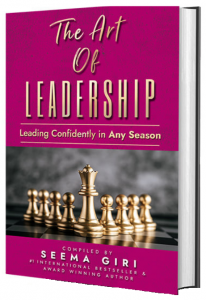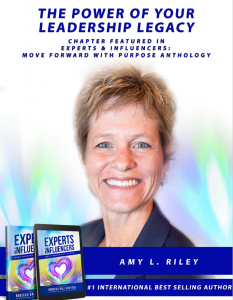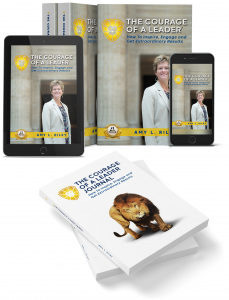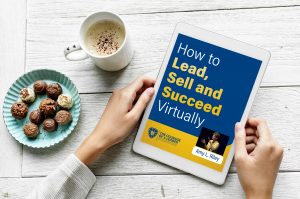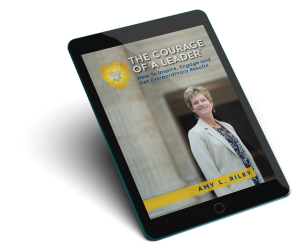My guest today on The Courage of a Leader podcast is Michael Gardon. Mike is a 3-time entrepreneur and creator of the Break Community on careercloud.com, and he provides a different and non-mainstream view on how to proceed when faced with uncertainty.
He’ll get you thinking and you’ll feel more grounded when the path forward is unclear.
This is not an episode to miss!
About the Guest:
Michael Gardon, a 3-time entrepreneur, is the creator of The Break Community on Careercloud.com, guiding a 14,000+ strong community to break through work barriers and live purposefully. Mike successfully transitioned from derivatives trader to corporate consultant to entrepreneur. Holding degrees from the University of Wisconsin-Madison and DePaul University, Mike engineered his BREAK in 2018, turning his side hustle into a million-dollar business called Advantage Mapping. He is also the founder of Quotebook, promoting family bonding.
Mike advocates for remote work and intentional work-life integration, sharing insights on various platforms and being featured on podcasts like Acquiring Minds and Startup Hustle. Based in the Midwest, Mike has built a life around family and welcomes discussions on purpose, career change, entrepreneurship, and side hustles like Quotebook, created with his 3 kids.
About the Host:
Amy L. Riley is an internationally renowned speaker, author and consultant. She has over 2 decades of experience developing leaders at all levels. Her clients include Cisco Systems, Deloitte and Barclays.
As a trusted leadership coach and consultant, Amy has worked with hundreds of leaders one-on-one, and thousands more as part of a group, to fully step into their leadership, create amazing teams and achieve extraordinary results.
Amy’s most popular keynote speeches are:
- The Courage of a Leader: The Power of a Leadership Legacy
- The Courage of a Leader: Create a Competitive Advantage with Sustainable, Results-Producing Cross-System Collaboration
- The Courage of a Leader: Accelerate Trust with Your Team, Customers and Community
- The Courage of a Leader: How to Build a Happy and Successful Hybrid Team
Her new book is a #1 international best-seller and is entitled, The Courage of a Leader: How to Inspire, Engage and Get Extraordinary Results.
https://www.linkedin.com/in/amyshoopriley/
Link mentioned in the podcast
The Inspire Your Team assessment (the courage assessment) – https://courageofaleader.com/inspireyourteam/
Warren Buffet – Circle of Competence
Charles Munger – Poor Charlie’s Almanack: The Wit and Wisdom of Charles T. Munger
https://www.goodreads.com/book/show/944652.Poor_Charlie_s_Almanack
Thanks for listening!
Thanks so much for listening to The Courage of a Leader podcast! If you got inspired and/or got valuable leadership techniques you can use from this episode and think that others could benefit from listening, please share using the social media buttons on this page.
Do you have questions or feedback about this episode? Leave a comment in the section below!
Subscribe to the podcast
If you would like to get automatic updates of new The Courage of a Leader podcast episodes, you can subscribe to the podcast on Apple Podcasts. You can also subscribe in your favorite podcast app.
Leave us an Apple Podcasts review
Ratings and reviews from our listeners are extremely valuable to us and greatly appreciated. They help our podcast rank higher on Apple Podcasts, which helps us ignite The Courage of a Leader in more leaders! Please take a minute and leave an honest review on Apple Podcasts.
Teaser for next episode
Stay tuned for our next guest podcast episode – The Generous Leader: How to Engage, Empower and Build More Success in Your Team – with Judy Hoberman, an award-winning international speaker, best-selling author, and leading authority on women in leadership and sales.
Transcript
When faced with uncertainty, what we intuitively do is often counterproductive. Mike Gardon, a three time entrepreneur and creator of the Break Community on careercloud.com provides a different and non mainstream view on how to proceed when faced with uncertainty. He'll get you thinking, and you'll feel more grounded, when the path forward is unclear. I'm glad you're here to listen in.
Amy Riley:Welcome to the Courage of a Leader podcast. This is where you hear real life stories of top leaders achieving extraordinary results. And you get practical advice and techniques, you can immediately apply for your own success. This is where you will get inspired. And take bold, courageous action. I'm so glad you can join us. I'm your host, Amy Riley. Now, are you ready to step into the full power of your leadership and achieve the results you care about most? Let's ignite the Courage of a Leader.
Amy Riley:Mike Gardon, thank you for being with me today on the Courage of a Leader podcast.
Mike Gardon:Thank you so much for having me. I'm excited. Yeah,
Amy Riley:I'm looking forward to this conversation. Mike, you help people put themselves on new paths, and build purposeful lives. And when we're doing something like that, we can face quite a bit of uncertainty. And even when we get there, things change, there's dynamics. Our world is in flux all the time. When you're working with folks, how do you help them get comfortable with uncertainty? How do you think about it and help them relate to it?
Mike Gardon:Yeah, so I think step number one in this whole process is for people to acknowledge how much uncertainty there actually is in the world. So I think we tend to, you know, have been indoctrinated that we are able to pick a path, make decisions early on in our lives, and our inner lives tend to unfold, you know, sort of linearly. And as we're in, I think, for, you know, several decades, we've really benefited from that people have had very stable, stable jobs, we've had a lot of growth in the economy. And now, you know, over the last year or two, we've we've seen about being a little bit more shaky ground, and I see a lot of people saying, Wait, am I even on the right path? What am I doing, you know, with, with my life, oh, this can really happen to me, I can be a top performer and still get let go. And so I think just the acknowledgement of things are a lot more out of our control. And so we need to, in order to thrive in that environment. Yeah, we need to build a strong foundation, where we are able to pivot, move, change, and adapt. And so it really starts with just sort of that eye opening experience of Oh, my God, you know, things actually can can sort of change. And they they do and they will,
Amy Riley:yeah, yeah, I love this acknowledgement of how much uncertainty there is around us. And Mike, as you were talking, I was thinking about how we used to have all of these career ladders inside of corporations. Right, then we started talking about them as career lattices. Right now there's more lateral moves and stretch climates and different ways to get experience and expertise. And now it's like, I think the career lattice is blown up with our gig economy are so many different ways to carve out what we want to do with our lives. And with options can come uncertainty. Yeah, how do you have this be empowering, and not overwhelming for the people that you work with?
Mike Gardon:Right? Yeah, cuz there's two sides of that, right? We've had we have when we have so many options, which we do. I mean, think about in this day and age, you can make a living doing almost anything. And that realization is very empowering it but then you go to the other end of the spectrum, where it's like, oh, my gosh, how do I decide? We sort of use this uncertainty spectrum that I talked about and, and try to use this visual to say, Look, we're not trying to know everything, but we're trying to operate in this middle ground of realizing what we can control what we can't, and understanding our foundation so that we're able to move and change as we gain the information that we need. So what were we get overwhelmed as we stay in this thinking planning mode of, I make one decision, and then I map out five years of my life, right, and you start thinking about all of these decisions downstream. And that's where the overwhelm happens. So, where I come in and help people deal with uncertainty, we sort of reprogram how we go about the path. And we make it about what is our heart centered decision, like what is the direction that we want to go, we let that sort of illuminate the pathway. And then all of our, all of our actions are taken in the immediate, what is the immediate next step that we take to acquire the information that we need to know if we're continuing on this path, or we have to stop and pivot. And so we try to focus directly on what we're doing in the moment to either create options or to get the information that we need, I call it bird dogging. So if anybody understands hunting, you watch a dog, you know, with its nose down, look going after a bird. That's what we're doing, we're not looking up and ahead 10 steps because we get overwhelmed that way. We're looking at the at the immediate thing right in front of us. So we need the skill sets of believing in ourselves and creating enough confidence in ourselves to take action. And then we need really good decision making filters for weeding out what I call false options, or you know, people talk about the shiny object syndrome, wow, I could do anything. So I'm going to do this or that how to and then how do I decide between these things. And we use filters to make those decisions. And one is we get really clear about your, your purpose, like what you want to do how you want to create value in the world, what is your future self look like? And then, using your foundational skill sets, what I call your advantage stack, and using those things as filters that say like, alright, if I moderately like yoga, you know, I can go build a yoga studio. But if I don't have like an advantage in going to do that, I'm probably going to that's probably gonna be a low odds path for me to quit my high paying corporate job and go do that. What are the other ways that I could pursue that passion in a different way that gets me more fulfillment, but doesn't bring me into doesn't trap me in the trappings of, you know, being a hustler, and an entrepreneur that I probably am not suited for.
Amy Riley:Terrific, Mike, I want to summarize what you've said so far, and make sure I've got it. Okay. So a few things going on in this building a strong foundation. First, I'm hearing the purpose work and heart centered, right. And then if I do that work to really understand what I'm being called forth from the very center of my being to do with my life. And I'm clear on that purpose, right, that sets a great foundation and helps me believe in me. And then I love these decision making filters. Well, and this idea about the immediate next step, because I think you're exactly right, a huge amount of overwhelm can come in when we think, okay, if I do a, then I have to do B, C, D, right? Or I have to know all the steps that are going to get me there. I actually have a visual in my book, Mike that says like, if we're going somewhere new and bold, we can't see exactly how to get there, the path gets fuzzy or dotted line or, you know, we don't even we don't even know how to craft it. But we take that next step. And then new things, open up. Options, thoughts, reactions, partnerships, whatever it might be. I love these decision making filters you're looking at, determine if something's a shiny object or not. Right, does it fit my purpose? And you know, who? Who I Am? What I'm about what who my future self wants to be? And then is it in my advantage stack? Yeah. And also, I'd love to say a little bit more about advantage stack. That's my strengths. And that's what I have. And it's also um, ghastly things I have access to.
Mike Gardon:Yeah. Yeah. So you summarize it pretty well, I would say like to take it a step further. I mean, you know, what, what ends up happening is with a lot of, let's say, upper 30s, lower 40s, mid 40s professionals that gets stuck is that they've made a lot of trade offs, in terms of what they actually want to do in life. And that's been a slow creep. And then they come to a realization like, I'm far away from the ideal version of myself. It's sort of like I've drifted away and people will say, Well, I'm I'm evaluating Opportunity a company A and opportunity a company B, and I'm trying to decide, and it's like, Well, okay, how do you decide, and most of them are using, you know, compensation and this and that kind of thing. But it's like, are any of those getting you closer to that ideal version of yourself, right? Like what, like your whole sort of holistic definition of of success, and it could be anything money's fine. That's where I say, like, understanding your purpose, like the work to do that is massively impactful, because it gives you a very solid foundation for the direction that you are trying to go, you know, with your remaining time here. So, so that that works. And then, you know, it makes no sense logical sense to do things that are like wildly outside of your capability set, that lowers your odds of success, it doesn't mean you can't build those capabilities. But let's be realistic about that. And so that's where sort of the advantage stack comes in. I do a whole bunch of work, which I created in which is called advantage mapping. And the idea goes beyond skills and strengths into eight areas of where I feel like you can create an advantage in your life. So things like, you know, people may think this is woowoo, but things like curiosity and energy, right, just being like mindful of the subjects and activities that build your energy rather than suck it away. Right? That is an advantage for you in your life to pursue things like that. Because if you go up against somebody else, that doesn't have that energy advantage there, you're gonna win. And so the magic comes in building a stack, which is essentially a intersection of your life in all of these advantaged way different advantages. And that becomes sort of your foundational Ninja skill, pivoting, you know, ability, right? That, then you can start to look at your options at the margins of where you want to expand, those are that stack. But the idea, you know, it comes from the idea of circle of competence from famed investor, Warren Buffett, which is a very good principle, you know, stay within your circle of competence, meaning know what, you know what, you know, I just expanded it, because I said, Well, it's not just all about knowledge. And like, sort of acquired skill, there's a number of other areas here, and, and so that becomes your foundation. And when you really think about it from the standpoint of, when you stop thinking about acquiring skills for your particular, you know, industry or job function, and you pull it back a layer to the foundational advantages that you have, then you can actually pivot and move and you can actually see how some of your abilities could be used in a different industry or in a different way of working. And now your mind starts to explode with Oh, my gosh, I can be this creative being and I can actually think about doing things in different ways. Yes,
Amy Riley:aul University in Chicago. In:Mike Gardon:salutely This is awesome.
Amy Riley:Excellent. All right, you you've already told us some techniques. What else can you share about techniques to support people in on certainty,
Mike Gardon:dealing with uncertainty. There's two main foundational tenets number one is like, what is your core foundation? How can you move? And the other is really the ability to create options for yourself. Okay, so I think, from an individual standpoint, the creation of options is where a lot of people get stuck. And from a support standpoint, like if you're a leader within a company, and you're undergoing a massive external change that's putting pressure on your team, I think it's really important to understand that like change is there's a big human element to change. And everybody lives somewhere different on that uncertainty tolerance spectrum. Yeah. And so being able to support and go deep with people in terms of setting their foundation, on an individual level, I think is really, really important in just to sort of illustrate that, like, we all know the term imposter syndrome, right? Like, in good times, I don't know 75 80% of people have impostor syndrome, right, then they are not confident that they belong at the table, or that they should be listened to, or they have some type of issue related to that. Now throw a chain and external change in there, right? Uncertainty ramps up and impostor syndrome goes to the moon, because people spiral with what if scenarios, right? And so helping people really ground themselves, in building confidence in those moments, especially, I think, is really, really impactful. With individuals, I do this in a number of different ways. We get feedback in corporations, obviously, there are 360, review processes and all of this kind of stuff. But what does it mean to take that data and build a map of somebody, and how they create value in the world, like handing somebody you know, here is here is you and what I believe in you, and I'm your manager, and you know, I'm signing off on this, I think this is really unique and special about you is a way that you just are able to foster resilience within your team members. And so again, that's that's stuff that I do on on an individual basis. But I think it applies very much to you know, managers within companies as well. Yeah,
Amy Riley:yeah, I'm hearing leaders be engaged with giving the feedback. And often when we think about feedback, we're thinking about developmental feedback, right? But be looking for those opportunities for that positive feedback. What are they doing? That's working great. Just tell me when a new project or a new something comes out? What value do you see this individual and that individual being able to contribute to the work at hand, right? So they, they hear, I've got something to provide here.
Mike Gardon:Yeah, and so think about number of ways you could do this, like, number one, you know, we've heard about psychological safety. So like, the idea that you can give people a very safe space and empathetic space to voice whatever they're feeling and not feel judged, is one, but you know, taking it even a step further, being able to run teams in parallel. To solve a, you know, a singular problem can be really beneficial, because you can give people on your team that have different skill sets, different ways to contribute. So not only do I think that's a very robust way of problem solving, because I'm a student of uncertainty. But I think that way, like we I remember, we always had a really good person who was just a very good devil's advocate, was very good at voicing the downsides, right. And we probably all know somebody on this, but we always gave her like that specific role, you know, on a team. And she was very not confident in a lot of other ways. But when she was in their roles, like she came alive, and she was really, really helpful. And that was it. So that's just like one example of how you can create teams to look at problems and the same problem in different ways. And get the most out of people and foster that sort of confidence and resilience in them on an individual level.
Amy Riley:I like this. And this running teams in parallel. Is this also a way to create multiple options?
Mike Gardon:You can't predict the future. So you can't expect that your one way of solving a problem is going to be correct. And unfortunately, you know, the corporate push for efficiency, cost efficient, all official all sorts of efficiencies and optimizations, you know, make us solve problems in those ways. And I think when you look at a problem from multiple perspectives, or you know, I guess be enough, quote unquote inefficient in spending your resources in the short term you, you get all these like upside, externalities that you can never imagine. And so I know that, you know, products have been created by by doing this process, you know, all sorts of good things can come out of it. It's not just sort of short term wasted resources. And that's obviously in addition to, you know, getting the most out of your team and allowing them opportunities to contribute in new ways that align more to their, you know, their strengths and their foundation and their innate abilities. So yeah, Mike,
Amy Riley:I do not think that enough leaders think about that as an option, right? Here's an opportunity, or here's a problem or a challenge that we're facing, we got to get a couple of streams of work going here. Right, I think we need to steal from the scientists and the r&d Labs, yeah, the world, right, where we're like, okay, we're trying this, we're trying this, we're trying this right, and we know that most of them are going to fail. And I think in too many other areas of business, we're trying to find the one solution, that's going to take care of what's in front of us. So I know you and I've talked about this before, and your perspective that you can't optimize problem solving, right, we've got to kind of have this inefficient if you will, approach to this, because we don't know the one solution that's going to best address this for us.
Mike Gardon:Right, it's sort of a pet peeve of mine. And so if anybody, if anybody does, you know, come and follow me on LinkedIn or engage with me on LinkedIn, they might see this a little bit where I, I say, like that I'm on a crusade against two words in the English language. One is efficiency. And the other is optimization. Because I think, in order for optimization, and efficiency to take precedence, you have to know what you are optimizing for. And so obviously, companies who have product market fit and have sales channel, like, yes, you can opt, I'm not saying optimization is wrong, but in the world of uncertainty, where you do not know the path forward, you cannot optimize for anything. Yes. And so any problem that you are chewing on, you have to, I think, what I say is like, you have to think horizontally rather than vertically, and be able to connect the dots between seemingly unrelated, you know, pieces of data, get out of the building, talk to people get information, and that's all like kind of that signal path, you know, wayfinding type stuff that I that I talked about. Because again, if you if you have going back to my first statement, you know, here, if you have acknowledged that you what you are pursuing is uncertain, then you owe it to yourself and your team and your company, to look at it from multiple angles and assume somewhere along the line, you're wrong. And I think that's just a humbling perspective to have anyway.
Amy Riley:Yeah, we don't know, there is a great deal of uncertainty here. One
Mike Gardon:of the examples I always give, which, if people don't know, don't understand, like finance, necessarily, this kind of blows people's minds, you know, we think of money managers, hedge fund managers as like these all knowing beings, right? Or they're, or they're corrupt, right? They have inside information or whatever. But we think of them as like these all knowing beings. And I tell people, like a huge position for some of these funds is 5% of the portfolio. It's like, if they know if they have an informational edge, and they know, with certainty the answer, why wouldn't they put 100% of the fund in that one? Bet or that one stock? Right, that makes logical sense? It's because they all realize that they're working on imperfect information. And they could be wrong. Yeah. And so they're optimizing for the entire portfolio, which for you, or for your team is all of your decisions. It's not the one decision or the one problem you're solving. But like the portfolio of decisions you're making over the course of a year, two years, five years, whatever that is. They're optimizing for that rather than the one decision that's in front of them. Yeah. And that always gets people because they're like, oh, my god, yeah. Okay, that 5% Wow. So that means they have, you know, how many bets out there, right. Like, there's
Amy Riley:a lot. Yeah, yeah. And that 5% is a significant holding. Yeah, that diversification, right, what you're pursuing? Yeah, I like to think of things horizontally. Right. And, and we have to admit that we don't yet know what we're optimizing for. So putting a number of things into play.
Mike Gardon:Yeah, and Again, from a logical standpoint, the efficiency mind standpoint, that seems like wasted resources. And I think in the long run, you learn more from that, which is then applicable to downstream decisions in the learning of your organization overall, again, optimizing for the whole portfolio rather than the one. The one decision today, like we are so bad at envisioning the upside, the upsides to uncertainty, the upside externalities, the the possibility that the future could be way better than we envision? Like, we're so bad as humans at thinking about that. So our risk reward calculations are skewed.
Amy Riley:Yeah, yeah. Great, thought provoking stuff, Mike. So if someone is listening today, and they're like, this is thought for broke provoking. So go out to LinkedIn, find Michael Gardon G A R D O N. Start following him there. But if we've got a mid level manager out there listening, Mike, and he's like, yeah, like, I like these ideas, I'm not really quite sure where to get started with my team. Where can they get started? And having themselves and their team relate to uncertainty in a more effective way? Yeah,
Mike Gardon:I mean, so I learned everything that I know from studying great investors, great entrepreneurs, and the discipline of human centered design. And so I compile all of that stuff in a weekly newsletter, you can go out to career cloud.com. And find my newsletter, it's called the break, it is geared more towards individuals, you know, looking at making career change, but I think the principles are all you know, all there. And then we I have run a community that you can find at that site as well, which is all about building flexibility, adaptability, and resilience. It's called unbreakable. And it's there as well. You know, it, they'd love to love to have you as a member, obviously. But if you just want to read the newsletter, or listen to my podcast, I talked to people who have, who go out and break their career on purpose and deal with, you know, uncertainty head on and change the course of their lives. And we have meaningful conversations about that whole process. So careercloud.com is a great place to start. If people want more resources, I would definitely look at the writings start with the writings of Warren Buffett and Charlie Munger, who are finance guys, but they have a lot of a lot of what they talk about is so relatable to just making decisions in the real world, and making those, you know, data driven and odds based decisions. Excellent.
Amy Riley:So that's where you can take a deeper dive we heard today. I mean, I think it'd be great to just acknowledge in a team forum, like how much uncertainty that there is, right, and leaders working with their folks, one on one to get grounded in their foundation, and in some of the things that would be mapped to their advantage stack, right, your innate qualities, your traits, your strengths that you bring. And yeah, and then this, pursuing different options. Let's not put all of our eggs in one basket, folks, because we don't know what's going to solve the uncertain situation in front of us. So much. Great stuff. Mike, thank you for taking the time to be with us today on the Courage of a Leader podcast. I appreciate learning from you, and you've got my mind going in different directions. Well,
Mike Gardon:excellent. Thank you so much for having me. This was a blast. I love talking about these topics and do it anytime. So I hope your listeners get something out of it.
Amy Riley:I'm sure that they did. Thank you,
Mike Gardon:You Bet
Amy Riley:Thank you for listening to the Courage of a Leader podcast. If you'd like to further explore this episode's topic, please reach out to me through the Courage of a Leader website at www.courageofaleader.com. I'd love to hear from you. Please take the time to leave a review on iTunes. That helps us expand our reach and get more people fully stepping into their leadership potential. Until next time, be bold and be brave because you've got the Courage of a Leader.


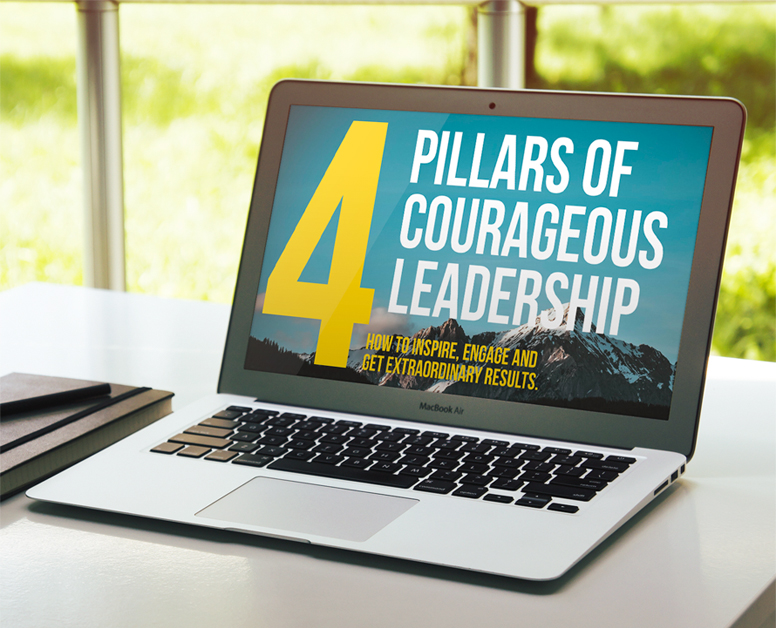 A Summary of The Courage of a Leader® 4 Pillars
A Summary of The Courage of a Leader® 4 Pillars